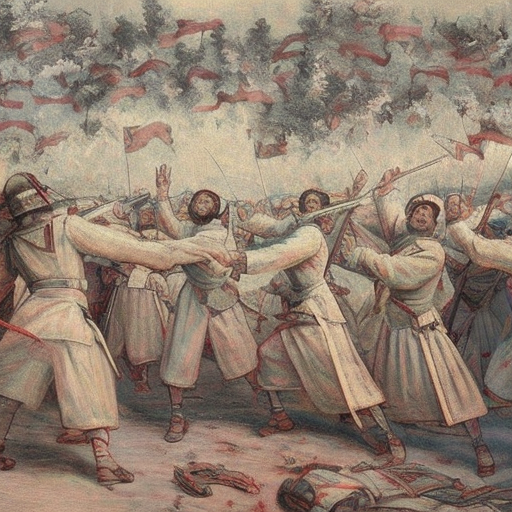One-line Summary:
Grand Illusion is a 1937 French war film directed by Jean Renoir. Set during World War I, the film follows a group of French prisoners of war and explores the social divisions that exist between them and their German captors. It delves into themes of class, nationality, and the futility of war, highlighting the shared humanity that transcends borders.
Main Cast and Crew:
- Director: Jean Renoir
- Writers: Jean Renoir, Charles Spaak
- Key Actors: Jean Gabin as Lieutenant Maréchal, Pierre Fresnay as Captain de Boeldieu, Erich von Stroheim as Captain von Rauffenstein
- Music Director: Joseph Kosma
- Director of Photography: Christian Matras
- Producers: Albert Pinkovitch, Frank Rollmer
Plot:
Set in a German prisoner-of-war camp during World War I, Grand Illusion revolves around the interactions between French prisoners and their German captors. Lieutenant Maréchal and Captain de Boeldieu, two French officers, are shot down and captured by the Germans. They are taken to a fortress commanded by Captain von Rauffenstein, a German aristocrat.
As the prisoners adjust to their new reality, they form friendships and alliances that transcend national boundaries. Lieutenant Maréchal befriends a working-class German soldier, while Captain de Boeldieu strikes up a rapport with Captain von Rauffenstein, who shares his aristocratic background. These relationships challenge the notion of enemy and friend, highlighting the common humanity that exists between individuals.
The prisoners make several escape attempts, but their efforts are thwarted by the Germans. Eventually, Captain de Boeldieu sacrifices himself to allow Lieutenant Maréchal to escape successfully. The film concludes with Maréchal reaching safety and reflecting on the futility of war.
Themes and Motifs:
Grand Illusion explores themes of class, nationality, and the futility of war. The film highlights the social divisions that exist between the prisoners and their captors, emphasizing the impact of class on individual experiences. It also examines the arbitrary nature of national borders and the shared humanity that transcends them.
The motif of illusion runs throughout the film, symbolizing the false sense of superiority and invincibility that both the French and German officers hold. The title itself, “Grand Illusion,” refers to the illusion of power and control that war creates, ultimately revealing its emptiness.
Reception and Legacy:
Upon its release, Grand Illusion received critical acclaim and was praised for its nuanced portrayal of war and its exploration of social divisions. It won the Best Foreign Film award at the New York Film Critics Circle Awards and was nominated for the Best Picture award at the 1938 Academy Awards.
The film’s lasting impact on cinema is undeniable. It is often regarded as one of the greatest war films ever made and has influenced numerous filmmakers, including Orson Welles and Steven Spielberg. Its exploration of the futility of war and the human connections that transcend national boundaries continues to resonate with audiences to this day.
Recommendation:
Grand Illusion is a thought-provoking and emotionally resonant film that offers a unique perspective on war. Its exploration of class, nationality, and the shared humanity that exists between individuals makes it a timeless masterpiece. Fans of war films, as well as those interested in thought-provoking cinema, should not miss this classic.
Memorable Quote:
“You see, Boeldieu, in this war, things get blurred. It’s not only the front that’s disappearing, but the towns and the people as well. The things we’re fighting for, things we’re defending – they’re not there anymore. It’s as if the whole world’s sinking into a bog, and we’re stuck in it, neither moving forward nor backward.”












